![]()
Reincarnation in early Christianity and New Testament
"The doctrine of reincarnation was banished because it gives power and authority to the people. Reincarnation contradicted the aspirations of a few bishops and deacons who felt they alone should dispense the truth to the multitudes. This authoritarian strangle-hold is strengthened by the doctrine of"one chance-one life"because a person who wrongly chose to think for themselves, dismissing the authority of the hierarchy, would not get another chance to put things aright if they guessed wrongly. The position of the hierarchy is that eternal damnation without parole would be the irrevocable fate of those who dared to question the hierarchy's authority.”
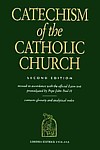
“In the first five hundred years of Christianity, reincarnation was
most certainly on the main stage. It was a prominent and well-
respected merchant in the bazaar of Christian theology.
A significant number of early church pillars such as St. Augustine,
Clement of Alexandria, St. Gregory of Nyssa, Justin Martyr, and St.
Jerome believed in the doctrine of reincarnation. In his Confessions,
St. Augustine ponders the common sense viability of reincarnation:
Did my infancy succeed another age of mine that dies before it? Was
it that which I spent within my mother's womb? ... And what before
that life again, O God of my joy, was I anywhere or in any body?
Confessions of St. Augustine, Edward Pusey, translator, Book I.
There is one early church father who is the central figure in this
complex story of intrigue and deception. According to the
Encyclopedia Britannica, Origen (C.E. 185-254) was the most
prominent, most distinguished and most influential of the early
church fathers. We would do well to consider the enormity of this
statement. The Encyclopedia Britannica also declares that he was the
most prolific writer and theologian of early Christianity with works
numbering around 6,000. St. Jerome asks," Which of us can read all
that he has written?”It is important to understand that Origen's
story, is not about the trials and tribulations of an obscure
backwoods rogue theologian. How such an important and prominent
luminary receded into the blackness of obscurity is a fascinating
story and underscores the ego's perennial effort to have its own way.
The Encyclopedia Britannica describes Origen as both a Neo-Platonist
and a Gnostic. Socrates and Plato were arguably the most important
bearers of the doctrine of reincarnation to the Western world. The
first clear presentation of reincarnation by these two is in Plato's
Meno and later in the Phaedo where the concept is fully articulated.
In the Phaedo, Socrates (under the pen of Plato) goes to great
lengths to explain the philosophy proposing that the soul is immortal
and does not cease to exist when the body expires. In Plato's
Republic, the character Er describes the after death journey of the
soul in graphic detail before"coming back.”These ideas are expanded
in the Timaeus and the Phaedrus in which Socrates presents
reincarnation in the strongest terms.
Aristotle emphasized a more empirical materialism which focused on
the here-and-now; the observable. It should be pointed out that
through the centuries many philosophers have strongly disagreed with
Aristotle's"logic of categories"Axiom which proposes a tidy
compartmentalization of all aspects of existence both cosmic and
human. This theory supposes no overlapping connection of the various
categories of knowledge such as science, history and religion. Thomas
Aquinas, who played a large role in shaping Christianity as we know
it today, based his entire view of life on Aristotelian logic thus
abandoning the mystical experiential traditions altogether. In this
light we can understand more clearly the Encyclopedia Britannica's
categorization of Origen as a Neo-Platonist with a decidedly Gnostic
flavor. The Gnostics, as described earlier, believed that truth could
be gained only through"Gnosis"or direct experience of God. They
emphasized ecstatic communion and the inward path toward God. About
reincarnation, Origen has this to say:
If it can be shown that an incorporeal and reasonable being has life
in itself independently of the body and that it is worse off in the
body than out of it, then beyond a doubt bodies are only of secondary
importance and arise from time to time to meet the varying conditions
of reasonable creatures. Those who require bodies are clothed with
them, and contrawise, when fallen souls have lifted themselves up to
better things their bodies are once more annihilated. They are thus
ever vanishing and ever reappearing. Origen, from A Select Library of
the Nicene and Post-Nicene Fathers of the Christian Church, P. Schaff
and H. Wace editors.
By some inclination toward evil, certain spirit souls come into
bodies, first of men; then, due to their association with the
irrational passions after the allotted span of human life, they are
changed into beasts, from which they sink to the level of plants.
From this condition they rise again through the same stages and are
restored to their heavenly place. Origen, On First Principles, B. W.
Butterworth, translator.
As with many great saints of the past, there was nothing lukewarm
about Origen. While his supporters were passionate in heralding his
views, his detractors passionately pursued his destruction. Origen
was banished forever from official church recognition at the Second
Council of Constantinople (the Fifth Ecumenical Council) amidst a
back drop of swirling political intrigue and dissension that was so
severe it leaves many students of the event to question whether or
not Christians are bound by the edicts and anathemas that were
adopted there.
Emperor Justinian wrote a letter to the Patriarch of Constantinople
naming Origen as one of the pernicious heretics. To be a heretic is
bad enough but pernicious means"1. insidious harm or ruin; 2. deadly
or fatal.”In other words, there are no human beings worse than this.
Justinian then convened a synod at Constantinople in 543 C.E. which
issued an edict refuting Origen. Pope Vigilius opposed the edict and
promptly suspended all communication with the Patriarch of
Constantinople. When the Pope arrived in Constantinople he reversed
himself issuing a document supporting the Justinian edict. Many
speculate that this document was issued at the gunpoint of intense
political pressure. These speculations are confirmed by the fact that
Pope Vigilius withdrew the document seven years later in 550 C.E.
After much rancorous discussion and many maneuvers, Justinian called
for a meeting of the entire Church in 553 C.E. known as the Fifth
Ecumenical Council or the Second Council of Constantinople. The
Church was geographically divided into East and West with these lines
of division also extending into religious and philosophical matters.
In general, the West was supportive of Origen while the East was not.
Justinian himself presided over the meeting because Pope Vigilius had
boycotted the gathering as an act of protest over irregularities such
as stacking the arrangements for attendance against the West. It was
highly irregular for Justinian and not the Pope to preside over this
conclave. Of the 165 bishops who signed the acts of the Council not
more than six were from the West because they were not in attendance.
Let us recap for emphasis. The Pope refused to attend, Justinian ran
the meeting and half of the bishops, the ones most likely to support
Origen, did not attend the Council meeting.
In the long run, Pope Vigilius accepted the Council but the West did
not recognize the Council as legitimate for some time. Several
Western dioceses even broke off communication with Rome. Milan was so
righteously indignant over this blatant skewering of propriety that
they did not rejoin Rome until the end of the sixth century. To add
to the vagary of Origen's demise, it should be noted that in the end
of the Fifth Ecumenical Council's fourteen anathemas, Origen's name
is mentioned in only one of them nestled in a list of heretics. There
is some evidence that even this was an error. The tragedy is that
Christians have been led to believe that the doctrine of
reincarnation has never been part of Christian faith. Others have
supposed that the question of reincarnation was forever closed at the
Fifth Ecumenical Council.
To further clarify the picture of Origen's crucifixion, it is
important to understand his principle antagonist, emperor Justinian.
The Encyclopedia Britannica has interesting things to say about him.
The truth seems to be that Justinian was not a great ruler in the
higher sense of the word, that is to say, a man of large views, deep
insight...
Justinian was quick rather than strong or profound; his policy does
not strike one as the result of deliberate and well-considered views,
but dictated by the hopes and fancies of the moment.
In contrast, no previous ruler had taken such an interest in church
policy as did Justinian. In what way is a man who is a shallow-minded
opportunist (to summarize the Encyclopedia Britannica's
characterization) interested in deeper spiritual matters? This
question has left many to speculate that Justinian saw the Church as
a means of control and exploitation with the whip being his"one life
then heaven or hell"policy.
While Justinian is portrayed as soft and indecisive, his wife the
empress Theodora, was an indomitable freight train of decisiveness
and strength. It should be clearly understood that she was not merely
his consort but was empress regnant which means she had the legal
right to interfere and run the empire. Officials took an oath to her
as well as to Justinian. In the great Nika insurrection of 532, her
courage alone saved her husband from being overthrown.
According to Procopius the historian, Theodora was the daughter of a
bear feeder of the amphitheater at Constantinople, and she began
working as an actress (regarded as an extremely low vocation) while
still a child. Later she became a well-known courtesan and eventually
met Justinian in Constantinople. Justinian's aunt, who was the
empress at the time, forbade the marriage but upon her death
Justinian repealed a law which prohibited senators from marrying
women of the stage. In 527, at the death of Justinian's uncle the
emperor Justin, Justinian and Theodora became rulers of the Roman
Empire. He was forty-four and she was twenty-four.
According to Procopius as written in the Encyclopedia Britannica,
"She surrounded herself with ceremonious pomp, and required all who
approached to abase themselves in a manner new even to that half-
Oriental court. She constituted herself the protectress of faithless
wives against outraged husbands, yet professed great zeal for the
moral reformation of the city, enforcing severely the laws against
vice, and confining five hundred courtesans, whom she had swept out
of the streets of the capital, in a 'house of repentance' on the
Asiatic side of the Bosphous strait. Procopius portrays her as acting
with the greatest cruelties. The Encyclopedia Britannica goes on to
state that we are able to gather from other writers that Theodora was
indeed extremely harsh and tyrannical.”
The following is an excerpt from the Anecdota by Procopius describing
Justinian. I think this is as good a time as any to describe the
personal appearance of the man. Now in physique he was neither tall
nor short, but of average height; not thin, but moderately plump; his
face was round, and not bad looking, for he had good color, even when
he fasted for two days. To make a long description short, he much
resembled Domitian, Vespasian's son...
Now such was Justinian in appearance; but his character was something
I could not fully describe. For he was at once villainous and
amenable; as people say colloquially, a moron. He was never truthful
with anyone, but always guileful in what he said and did, yet easily
hoodwinked by any who wanted to deceive him. His nature was an
unnatural mixture of folly and wickedness. What in olden times a
peripatetic philosopher said was also true of him, that opposite
qualities combine in a man as in the mixing of colors. I will try to
portray him, however, insofar as I can fathom his complexity.
This Emperor, then, was deceitful, devious, false, hypocritical, two-
faced, cruel, skilled in dissembling his thought, never moved to
tears by either joy or pain, though he could summon them artfully at
will when the occasion demanded, a liar always, not only offhand, but
in writing, and when he swore sacred oaths to his subjects in their
very hearing. Then he would immediately break his agreements and
pledges, like the vilest of slaves, whom indeed only the fear of
torture drives to confess their perjury. A faithless friend, he was a
treacherous enemy, insane for murder and plunder, quarrelsome and
revolutionary, easily led to anything, but never willing to listen to
good counsel, quick to plan mischief and carry it out, but finding
even the hearing of anything good distasteful to his ears.
How could anyone put Justinian's ways into words? These and many even
worse vices were disclosed in him as in no other mortal: nature
seemed to have taken the wickedness of all other men combined and
planted it in this man's soul. And besides this, he was too prone to
listen to accusations; and too quick to punish. For he decided such
cases without full examination, naming the punishment when he had
heard only the accuser's side of the matter. Without hesitation he
wrote decrees for the plundering of countries, sacking of cities, and
slavery of whole nations, for no cause whatever. So that if one
wished to take all the calamities which had befallen the Romans
before this time and weigh them against his crimes, I think it would
be found that more men had been murdered by this single man than in
all previous history.
He had no scruples about appropriating other people's property, and
did not even think any excuse necessary, legal or illegal, for
confiscating what did not belong to him. And when it was his, he was
more than ready to squander it in insane display, or give it as an
unnecessary bribe to the barbarians. In short, he neither held on to
any money himself nor let anyone else keep any: as if his reason were
not avarice, but jealousy of those who had riches. Driving all wealth
from the country of the Romans in this manner, he became the cause of
universal poverty.”
Now this was the character of Justinian, so far as I can portray it.
Translated by Richard Atwater, in Procopius, Secret History,
(Chicago: P. Covicii; New York: Covicii Friedal, 1927), reprinted by
University of Michigan Press, 1961
"The historian Procopius, who wrote the above narrative, was appointed secretary to General Belisarius in 527 C.E. The General was Justinian's right-hand man and personal confidant. Procopius also wrote the well known Histories in eight books, the Buildings of Justinian in six books and the Anecdota. For obvious reasons, the Anecdota was not published until after the death of Procopius. As a historian and chronicler of Justinian and his court, he was constrained to write only positive accounts while everyone concerned was still alive. Secretly he wrote the Anecdota to expose the utter immorality and disregard for decency expressed in the lives of Justinian and Theodora. The Encyclopedia Britannica says:
Owing to the ferocity and brutality of the attacks upon Justinian, the authenticity of the Anecdota has been called in question, but the claims of Procopius to the authorship are now generally recognized. In other words, the Anecdota reflected so badly on Justinian and Theodora that it was difficult to believe it could be true. It is not the intent of this book to serve as an indictment of these two souls - may they find peace and love wherever they are. The information about Justinian and Theodora and the demise of Origen is printed here as an aid to understanding that the fortunes of the Holy Scriptures and Christian doctrine in general have not always been in the hands of God's servants. The removal of the doctrine of reincarnation may not have been God's doing. God may have originated or inspired the scriptures that we have now accepted to be Christian but since then, they have, on occasion, been placed in the hands of those with little understanding. Because of this, we should abandon the expectation that these scriptures would arrive in the twenty-first century unscathed.
The doctrine of reincarnation was banished because it gives power and authority to the people. Reincarnation contradicted the aspirations of a few bishops and deacons who felt they alone should dispense the truth to the multitudes. This authoritarian strangle-hold is strengthened by the doctrine of"one chance-one life"because a person who wrongly chose to think for themselves, dismissing the authority of the hierarchy, would not get another chance to put things aright if they guessed wrongly. The position of the hierarchy is that eternal damnation without parole would be the irrevocable fate of those who dared to question the hierarchy's authority.”
REINCARNATION IN EARLY CHRISTIANITY
http://www.reincarnation.ws/reincarnation_in_early_christianity.html
Reincarnation in the New Testament
“THE BLIND MAN
As he went along, he saw a man blind from birth. His disciples asked him," Rabbi, who sinned, this man or his parents, that he was born blind?”John 9:1-2, NIV
The disciples wanted to know the reason for the man's blindness. They offered two possibilities to Jesus. Either the man was blind because of the sins of his parents or he was blind because he was reaping the fruit of his own sins (karma). If our souls do not exist prior to this birth and if the man was born blind, then when or where could he have committed the sins that caused his blindness? His soul would have existed prior to that birth and he would have been engaged in a corporeal setting with other people to commit sins against or with. In other words, the blind man had a previous life. This indicates that the pre-existence of the soul was a prevalent idea among the disciples, otherwise how could they have asked such an unusual question? Neither does Jesus ask them where they got such a strange idea. He does not marvel that they have presented him with such a foolish concept. Where did they get this idea? As we have seen in the"blind man"scripture and other scriptures, the concept of reincarnation was understood by Jesus and the disciples. They employed the concept in these discussions in a matter-of-fact way.
ELIJAH'S RETURN
Elijah the prophet is believed to have lived in the ninth century B.C.E. At the point of his death a fiery chariot with horses of fire took him in a whirlwind to heaven and he was seen no more (II Kings 2:11). Four hundred years later, Malachi closed the last lines of the Old Testament with a prophecy from God stating that God would send Elijah before the"great and terrible day of the Lord"comes (Malachi 4:5). The Jewish people were expecting Elijah to return as the necessary preface to signal the coming of the Messiah.
The disciples all felt that Jesus was the Messiah but they were puzzled. Where is Elijah? The disciples asked the Master about this and he told them that Elijah had already returned as John the Baptist. The first discussion of this is in Matthew, chapter 11.
I tell you the truth: Among those born of women there has not risen anyone greater than John the Baptist; yet he who is least in the kingdom of heaven is greater than he. From the days of John the Baptist until now, the kingdom of heaven has been forcefully advancing, and forceful men lay hold of it. For all the Prophets and the Law prophesied until John. And if you are willing to accept it, he is the Elijah who was to come. He who has ears, let him hear. Matthew 11:11-15, NIV
The disciples asked him," Why then do the teachers of the law say that Elijah must come first?”Jesus replied," To be sure, Elijah comes and will restore all things. But I tell you, Elijah has already come, and they did not recognize him, but have done to him everything they wished. In the same way the Son of Man is going to suffer at their hands.”Then the disciples understood that he was talking to them about John the Baptist. Matthew 17:10-13, NIV
The above scripture indicates that the disciples and Jesus believed in reincarnation. John the Baptist was the reincarnation of Elijah. In an attempt to fit these scriptures into the orthodox view of one-life-only, some believe that Elijah never died as we know it because he went up in a chariot of fire, thus discounting John the Baptist as an instance of reincarnation. Their thinking is that Elijah did inhabit John the Baptist but it was not rebirth because Elijah had never died. For this"discounting"to really work, the Baptist would need to have returned in the same fiery chariot as a grown man. However, he was clearly placed in the womb of a human mother after which he had a very mortal and common birth. Jesus said he was"born of woman"And in Luke 1:13-17, an angel tells John's father, Zacharias, that John will be born to his wife Elizabeth...”And he will go before him in the spirit and power of Elijah.”Others use this last line to say that John the Baptist was under the power of Elijah but was not the incarnation of Elijah. However, Jesus says in no uncertain terms that John is Elijah and not simply an ambassador of Elijah's power," This is Elijah... He who has ears to hear let him hear" (Matthew 11:14-15). Also, Malachi does not say that Elijah will appear by proxy but that Elijah himself will return.
WHO IS THE SON OF MAN?
Yet another discussion between Jesus and the disciples underscores their belief in reincarnation.
When Jesus came to the region of Caesarea Philippi, he asked his disciples," Who do people say the Son of Man is?”They replied," Some say John the Baptist; others say Elijah; and still others, Jeremiah or one of the prophets.” "But what about you?”he asked.”Who do you say I am?”Simon Peter answered," You are the Christ, the Son of the living God.”Matthew 16:15-16
The flow here seems to be that if a prophet were to appear he must be the incarnation of one of the prophets from the past and so Jesus is asking the disciples who the people think has incarnated as Jesus. The idea of the reincarnation of the prophets is taken for granted and the sole point of the question is to find out who the multitudes believe him to be. These scriptures indicate that, at least to Jesus and the disciples, the concept of reincarnation was common fare. Herod also heard that others were saying one of the prophets of long ago had reincarnated. This again indicates that such a belief in reincarnation was common at that time.
Now Herod the tetrarch heard about all that was going on. And he was perplexed, because some were saying that John had been raised from the dead, others that Elijah had appeared, and still others that one of the prophets of long ago had come back to life. Luke 9:7-8, NIV"
Reincarnation in the New Testament
http://www.reincarnation.ws/reincarnation_in_the_new_testament.html
Reincarnation surahs that will destroy the hatred and ignorance Muslims have of kaffir religions they themselves experienced countless times before Islam, during, and will the Islam after Qiyamah (The Resurrection) that ends either in continuation of the endless samsara or beginning of the eternal divine future.
1. Surah 2.28 Al Baqarah (The Heifer)
2. Surah 4:97-99 Al Nisa (The Women)
3. Surah 22:5 Al Hajj (The Pilgrimage)
4. Surah 23:12-15 Al-Mu'minum (The True Believers)
5. Surah 39:42 Al Zumar (Crowds)
6. Surah 56:60-61 Al Waqi'h (The Inevitable)
7. Surah 71:13-14 Nuh (Noah)
And so will it destroy that of Jews and Christians!
Reincarnation in the Old Testament and Jewish Kaballah
Reincarnation in early Christianity and New Testament
That destruction also tests ignorance and fate of those who worship the religions of reincarnation — Hindus, Buddhists, Sikhs and Jains!
Reincarnation quotes from famous people
Benjamin Franklin
"I look upon death to be as necessary to the constitution as sleep.
We shall rise refreshed in the morning.”And," Finding myself to
exist in the world, I believe I shall, in some shape or other always
exist.”
Jack London, author, best known for book Call of the Wild
"I did not begin when I was born, nor when I was conceived. I have been growing, developing, through incalculable myriads of millenniums. All my previous selves have their voices, echoes, promptings in me. Oh, incalculable times again shall I be born.”
Mark Twain
"I have been born more times than anybody except Krishna.”
Leo Tolstoy
"As we live through thousands of dreams in our present life, so is our present life only one of many thousands of such lives which we enter from the other more real life and then return after death. Our life is but one of the dreams of that more real life, and so it is endlessly, until the very last one, the very real the life of God.”
Henry Ford
"I adopted the theory of reincarnation when I was 26. Genius is experience. Some think to seem that it is a gift or talent, but it is the fruit of long experience in many lives"
Johann Wolfgang von Goethe, (German poet, playwright and scientist)
"As long as you are not aware of the continual law of Die and Be Again, you are merely a vague guest on a dark Earth.”
Freidrich Nietzsche
"Live so that thou mayest desire to live again - that is thy duty - for in any case thou wilt live again!"
Mahatma Ghandi
"I cannot think of permanent enmity between man and man, and believing as I do in the theory of reincarnation, I live in the hope that if not in this birth, in some other birth I shall be able to hug all of humanity in friendly embrace.”
Ralph Waldo Emerson
"The soul comes from without into the human body, as into a temporary abode, and it goes out of it anew it passes into other habitations, for the soul is immortal.” "It is the secret of the world that all things subsist and do not die, but only retire a little from sight and afterwards return again. Nothing is dead; men feign themselves dead, and endure mock funerals... and there they stand looking out of the window, sound and well, in some strange new disguise.”
General George S. Patton
"So as through a glass and darkly, the age long strife I see, Where I fought in many guises, many names, but always me.”
Albert Schweitzer
"Reincarnation contains a most comforting explanation of reality by means of which Indian thought surmounts difficulties which baffle the thinkers of Europe.”
Walt Whitman
"I know I am deathless. No doubt I have died myself ten thousand times before. I laugh at what you call dissolution, and I know the amplitude of time.”
William Wordsworth
"Our birth is but a sleep and a forgetting; The Soul that rises with us, our life's Star, Hath had elsewhere its setting. And cometh from afar.”
Jalalu Rumi (Islamic Poet of the 13th century)
"I died as a mineral and became a plant, I died as a plant and rose to animal, I died as animal and I was man. Why should I fear? When was I less by dying?”
Carl Jung
"My life often seemed to me like a story that has no beginning and no end. I had the feeling that I was an historical fragment, an excerpt for which the preceding and succeeding text was missing. I could well imagine that I might have lived in former centuries and there encountered questions I was not yet able to answer; that I had been born again because I had not fulfilled the task given to me.”
Henry David Thoreau
"Why should we be startled by death? Life is a constant putting off of the mortal coil - coat, cuticle, flesh and bones, all old clothes.”
Socrates
"I am confident that there truly is such a thing as living again, that the living spring from the dead, and that the souls of the dead are in existence.”
Jesus Christ in Gnostic Gospels: Pistis Sophia
"Souls are poured from one into another of different kinds of bodies of the world.”
Voltaire
"It is not more surprising to be born twice than once; everything in nature is resurrection.”
Josephus (most well known Jewish historian from the time of Jesus)
"All pure and holy spirits live on in heavenly places, and in course of time they are again sent down to inhabit righteous bodies.”
Honore Balzac (French writer)
"All human beings go through a previous life... Who knows how many fleshly forms the heir of heaven occupies before he can be brought to understand the value of that silence and solitude of spiritual worlds?”
Arthur Schopenhauer (Philosopher)
"Were an Asiatic to ask me for a definition of Europe, I should be forced to answer him: It is that part of the world which is haunted by the incredible delusion that man was created out of nothing, and that his present birth is his first entrance into life.”
Paul Gauguin (French post-impressionist painter)
"When the physical organism breaks up, the soul survives. It then takes on another body.”
George Harrison
"Friends are all souls that we've known in other lives. We're drawn to each other. Even if I have only known them a day., it doesn't matter. I'm not going to wait till I have known them for two years, because anyway, we must have met somewhere before, you know.”
THE APOCALYPSE OF THE SPIRIT-PARACLETE
The fulfillment of eschatological instruction promised by Jesus
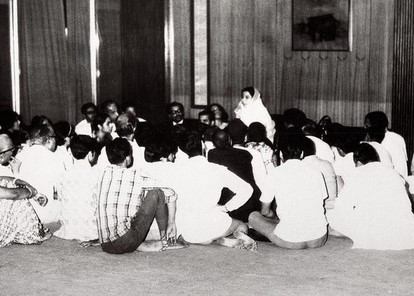
Total number of recorded talks 3058: Public Programs 1178, Pujas 651, and other (private conversations) 1249
“The Paraclete will come (15:26; 16:7, 8, 13) as Jesus has come into the world (5:43; 16:28; 18:37)... The Paraclete will take the things of Christ (the things that are mine, ek tou emou) and declare them (16:14-15). Bishop Fison describes the humility of the Spirit, 'The true Holy Spirit of God does not advertise Herself: She effaces Herself and advertises Jesus.' ...
It is by the outgoing activity of the Spirit that the divine life communicates itself in and to the creation. The Spirit is God-in-relations. The Paraclete is the divine self-expression which will be and abide with you, and be in you (14:16-17). The Spirit's work is described in terms of utterance: teach you, didasko (14:26), remind you, hypomimnesko (14:26), testify, martyro (15:26), prove wrong, elencho (16:8), guide into truth, hodego (16:13), speak, laleo (16:13, twice), declare, anangello (16:13, 14, 15). The johannine terms describe verbal actions which intend a response in others who will receive (lambano), see (theoreo), or know (ginosko) the Spirit. Such speech-terms link the Spirit with the divine Word. The Spirit's initiatives imply God's personal engagement with humanity. The Spirit comes to be with others; the teaching Spirit implies a community of learners; forgetful persons need a prompter to remind them; one testifies expecting heed to be paid; one speaks and declares in order to be heard. The articulate Spirit is the correlative of the listening, Spirit-informed community.
The final Paraclete passage closes with a threefold repetition of the verb she will declare (anangello), 16:13-15. The Spirit will declare the things that are to come (v.13), and she will declare what is Christ's (vv. 14, 15). The things of Christ are a message that must be heralded...
The intention of the Spirit of truth is the restoration of an alienated, deceived humanity... The teaching role of the Paraclete tends to be remembered as a major emphasis of the Farewell Discourses, yet only 14:26 says She will teach you all things. (Teaching is, however, implied when 16:13-15 says that the Spirit will guide you into all truth, and will speak and declare.) Franz Mussner remarks that the word used in 14:26, didaskein, "means literally 'teach, instruct,' but in John it nearly always means to reveal.” (Stevick 2011, 292-7)
The Holy Spirit as feminine: Early Christian testimonies and their interpretation,
Johannes van Oort, Radboud University, Nijmegen, The Netherlands
Department of Church History and Church Polity, Faculty of Theology, University of Pretoria, South Africa
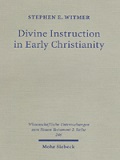
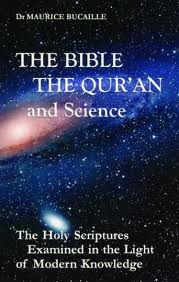
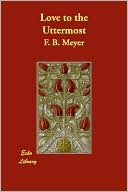
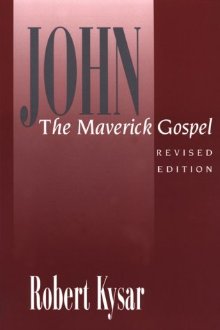
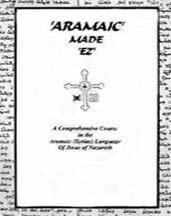
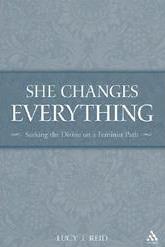
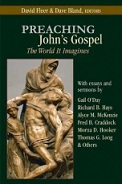
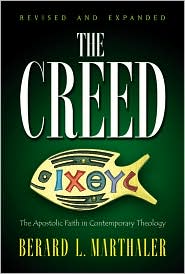
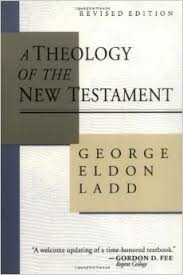
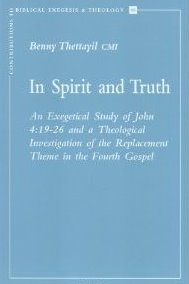

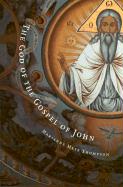
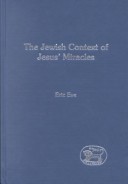
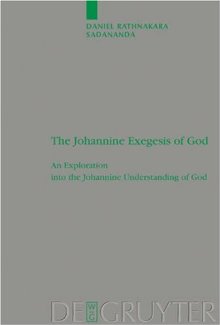
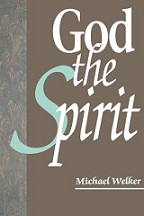
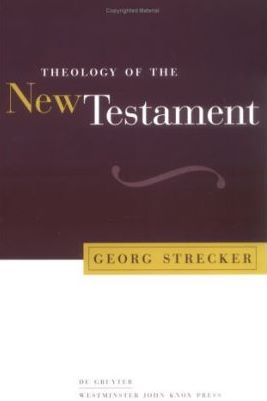

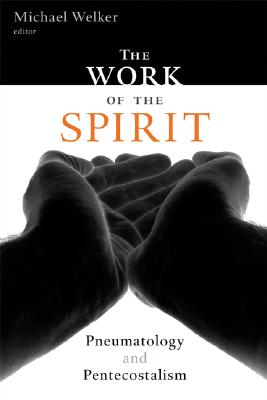
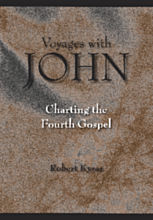
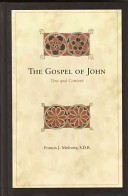
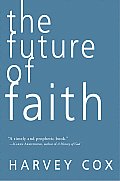
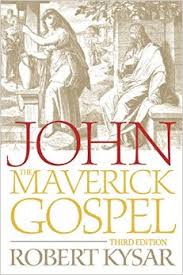
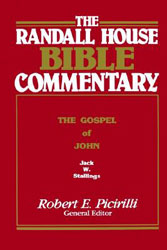

Stephen E. Witmer, Divine instruction in Early Christianity
“Jesus therefore predicts that God will later send a human being to Earth to take up the role defined by John .i.e. to be a prophet who hears God's words and repeats his message to man.”
M. Bucaille, The Bible, the Qur'n, and Science
“And when Jesus foreannounced another Comforter, He must have intended a Person as distinct and helpful as He had been.”
F. B. Meyer, Love to the Utmost
“The Paraclete has a twofold function: to communicate Christ to believers and, to put the world on trial.”
Robert Kysar, John The Meverick Gospel
“But She—the Spirit, the Paraclete...—will teach you everything.”
Danny Mahar, Aramaic Made EZ)
“Grammatical nonsense but evidence of the theological desire to defeminize the Divine.”
Lucy Reid, She Changes Everything
“The functions of the Paraclete spelled out in verses 13-15... are all acts of open and bold speaking in the highest degree.”
David Fleer, Preaching John's Gospel
“The reaction of the world to the Paraclete will be much the same as the world's reaction was to Jesus.”
Berard L. Marthaler, The Creed: The Apostolic Faith in Contemporary Theology
Bultmann calls the “coming of the Redeemer an 'eschatological event,' 'the turning-point of the ages.”
G. Ladd, A Theology of the New Testament
“The Paraclete equated with the Holy Spirit, is the only mediator of the word of the exalted Christ.”
Benny Thettayil, In Spirit and Truth
“The divine Paraclete, and no lessor agency, must show the world how wrong it was about him who was in the right.”
Daniel B. Stevick , Jesus and His Own: A Commentary on John 13-17
Stephen Smalley asserts that “The Spirit-Paraclete ... in John's Gospel is understood as personal, indeed, as a person.”
Marianne Thompson, The God of the Gospel of John
“The Messiah will come and the great age of salvation will dawn (for the pious).”
Eric Eve, The Jewish context of Jesus' Miracles
“The remembrance is to relive and re-enact the Christ event, to bring about new eschatological decision in time and space.”
Daniel Rathnakara Sadananda, The Johannine Exegesis of God
“The Spirit acts in such an international situation as the revealer of 'judgment' on the powers that rule the world.”
Michael Welker, God the Spirit
The Paraclete's “Appearance means that sin, righteousness, and judgment will be revealed.”
Georg Strecker, Theology of the New Testament
“While the Spirit-Paraclete is the true broker, the brokers they rely on are impostors.”
T. G. Brown, Spirit in the writings of John
“The pneumatological activity ... of the Paraclete ... may most helpfully be considered in terms of the salvific working of the hidden Spirit.”
Michael Welker, The work of the Spirit
“The pneuma is the peculiar power by which the word becomes the words of eternal life.”
Robert Kysar, Voyages with John
“The gift of peace, therefore, is intimately associated with the gift of the Spirit-Paraclete.”
Francis J. Moloney, The Gospel of John
“This utopian hope, even when modestly expressed, links Jesus and the prophets to a much wider history of human longing.”
Harvey Cox, The Future of Faith
“Because of the presence of the Paraclete in the life of the believer, the blessings of the end-times—the eschaton—are already present.”
Robert Kysar, John
“They are going, by the Holy Spirit's power, to be part of the greatest miracle of all, bringing men to salvation.”
R. Picirilli, The Randall House Bible Commentary
“The Kingdom of God stands as a comprehensive term for all that the messianic salvation included... is something to be sought here and now (Mt. 6:33) and to be received as children receive a gift (Mk. 10:15 = Lk. 18:16-17).”
G. Ladd, A Theology of the New Testament
Beliefs
By PETER STEINFELS JAN. 20, 2007
“The image of the God who judges in wrath has caused a great deal of spiritual damage," Professor Moltmann will be telling his listeners.
But he is not satisfied with the alternative that makes eternal destiny simply a matter of the individual's own choice of whether to reject God. In that case, Professor Moltmann says, the Last Judgment becomes no more than "the ultimate endorsement of our free will." God really has nothing much to do with it beyond implementing the human outcome; in short, "we are the lords, and God is our servant," he says.
The alternative, in Professor Moltmann's view, is to put Jesus Christ at the center of this final drama. "It is high time to Christianize our traditional images and perceptions of God's Final Judgment," he says.
Any Last Judgment with Christ at the center must answer the cries of human victims for justice, without simply meting out vengeance on the perpetrators of injustice, Professor Moltmann suggests. A Christian eschatological vision would involve not the retributive justice of human courts but "God's creative justice," which can heal and restore the victims and transform the perpetrators.
The goal of a final judgment, in this interpretation, is not reward and punishment but victory over all that is godless, which he calls "a great Day of Reconciliation." Professor Moltmann argues for the universal preservation and salvation not only of humans, as individuals and as members of groups, but also of all living creatures. It has been "a fatal mistake of Christian tradition in doctrine and spirituality," he argues, to emphasize the "end of the old age" rather than "the new world of God," the beginning of the "life of the world to come."
This resurrected life will be bodily and worldly, and its expectation, he says, should teach people to "give ourselves wholeheartedly to this life here and surrender in love" to its “beauties and pains.”
New York Times, Lessons for Living Found in Views of the Last Judgment
January 20, 2007
“But today is the day I declare that I am the one who has to save the humanity. I declare I am the one who is Adishakti, who is the Mother of all the Mothers, who is the Primordial Mother, the Shakti, the desire of God, who has incarnated on this Earth to give its meaning to itself; to this creation, to human beings and I am sure through My Love and patience and My powers I am going to achieve it.
I was the one who was born again and again. But now in my complete form and complete powers I have come on this Earth not only for salvation of human beings, not only for their emancipation, but for granting them the Kingdom of Heaven, the joy, the bliss that your Father wants to bestow upon you.”
THE MOTHER: Messiah-Paraclete-Ruh
London, UK—December 2, 1979
“I am the one about which Christ has talked... I am the Holy Spirit who has incarnated on this Earth for your realization.”
THE MOTHER: Messiah-Paraclete-Ruh
New York, USA—September 30, 1981
“But to communicate with the people, to communicate with the Spirit—to understand the Kundalini, the vibrations, and their different decodings and all that—the Holy Spirit had to come; with Her mouth, and with Her voice, and with Her intelligence that is intelligible to you; with the knowledge, and everything.
Otherwise it is not possible to communicate and that's why if somebody has to come you have to just recognize. Recognition is the best way of understanding the powers that are given to you...
So somebody has to be there to give you the complete picture. You get Realization, you get vibrations (Ruach, Pneuma, Prana), but then what? What about the complete? And for that the Holy Ghost has to take a form. All right?”
The Paraclete Shri Mataji
Sydney, Australia—April 7, 1981
Guest: “Hello Mother.”
Shri Mataji: “Yes.”
Guest: “I wanted to know, is the Cool Breeze (Pneuma) that you have spoken about, you feel on the hands the Cool Wind of the Holy Spirit, as spoken about in the Bible?”
Shri Mataji: “Yes. Yes, yes, same thing, same thing. You have done the good job now, I must say.”
Interviewer: “Is it the Holy Spirit?”
Shri Mataji: “Yes, of course, is the Holy Spirit.”
Guest: “Aha... I am feeling it now on my hand through the [not clear]”
Shri Mataji: “It’s good.”
Interviewer: “Did you want to say anything more than that?”
Guest: “No, I just... That’s all I wanted to know because I...”
Shri Mataji: “Because you are thoughtless now. Enjoy yourself.”
Guest: “Thank you.”
The Paraclete Shri Mataji
Talkback Radio 2UE, Sydney, Australia—March 31, 1981
Second Guest: “I just want to ask Mother about a quotation from the Bible.”
Interviewer: “Yes, what’s that?”
Guest: “It says, ‘But the comfort of the Holy Spirit that the Father will send in My name would teach you all things.’ I would like to ask Her about that.”
Interviewer: “Could you just repeat the quotation again?”
Guest: “But the Comforter, the Holy Spirit, whom the Father will send in My name, will teach you all things.”
Interviewer: “And that’s from where?”
Guest: “John chapter 14, verse 26.”
Shri Mataji: “I think you should take your realization and then you will know the answer to it. Because, logically if it points out to one person, then you have to reach the conclusion, isn’t it? That’s a logical way of looking at things. But I am not going to say anything or claim anything. It is better you people find out yourself.”
Interviewer: “Does that answer your question?”
Guest: “Is the, is the Comforter on the Earth at the present time? Has the Comforter incarnated? Mataji should be able to tell us this because She said that through these vibrations on Her hands, She ...”
Shri Mataji: “Yes, She is very much here and She’s talking to you now. Can you believe that?”
Guest: “Well, I feel something cool [Pneuma/Prana/Chi] on my hand. Is that some indication of the ...?”
Shri Mataji: “Yes, very much so. So that’s the proof of the thing. You’ve already started feeling it in your hands.”
Guest: “Can I?”
Shri Mataji: “Ask the question, ‘Mother, are you the Comforter?’”
Guest: “Mother, are you the Comforter?”
Shri Mataji: “Ask it thrice.”
Guest: “Mother, are you the Comforter?”
Shri Mataji: “Again.”
Guest: “Mother, are you the Comforter?”
Shri Mataji: “Now, what do you get?”
Guest: “Oh, I feel this kind of cool tingling [Pneuma/Prana/Chi] passing all through my body.”
Shri Mataji: “That’s the answer now.”
The Paraclete Shri Mataji
Talkback Radio 2UE, Sydney, Australia—March 31, 1981
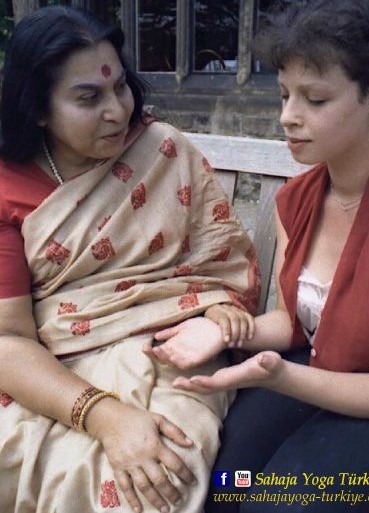
“The Paraclete and the disciples (vv. 25-26): The theme of departure (cf. vv. 1-6; vv. 18-24) returns. There are two "times" in the experience of the disciples: the now as Jesus speaks to them (v. 25) and the future time when the Paraclete, the Holy Spirit, sent by the Father in the name of Jesus, will be with them (v. 26). The Paraclete will replace Jesus' physical presence, teaching them all things and recalling for them everything he has said (v. 26). As Jesus is the Sent One of the Father (cf. 4:34; 5:23; 24, 30, 37; 6:38-40; 7:16; 8:16, 18, 26; 12:44-49), so is the Paraclete sent by the Father. The mission and purpose of the former Paraclete, Jesus (cf. 14:13-14), who speaks and teaches "his own" will continue into the mission and purpose of the "other Paraclete" (cf. v. 16) who teaches and brings back the memory of all that Jesus has said. The time of Jesus is intimately linked with the time after Jesus, and the accepted meaning of a departure has been undermined. The inability of the disciples to understand the words and deeds of Jesus will be overcome as they "remember" what he had said (cf. 2:22) and what had been written of him and done to him (cf. 12:16). The "remembering" will be the fruit of the presence of the Paraclete with the disciples in the in-between-time. In v. 16 Jesus focused on the inability of the world to know the Paraclete, but in v. 26 the gift of the Paraclete to "his own" is developed. As Jesus was with the disciples (v. 25), so will the Paraclete be with the disciples in the midst of hostility and rejection (v. 16). As the story has insisted that Jesus' teaching has revealed God to his disciples, so will the Paraclete recall and continue Jesus' revelation of God to the disciples (v. 26).” (Harrington 1998, 412)
“This is the transformation that has worked, of which Christ has talked, Mohammed Sahib has talked, everybody has talked about this particular time when people will get transformed.”
THE MOTHER: Messiah-Paraclete-Ruh
Chistmas Puja, Ganapatipule, India—25 December 1997
“The Resurrection of Christ has to now be collective Resurrection. This is what is Mahayoga. Has to be the collective Resurrection.”
THE MOTHER: Messiah-Paraclete-Ruh
Easter Puja, London, UK—11 April 1982
“Today, Sahaja Yaga has reached the state of Mahayoga, which is en-masse evolution manifested through it. It is this day’s Yuga Dharma. It is the way the Last Judgment is taking place. Announce it to all the seekers of truth, to all the nations of the world, so that nobody misses the blessings of the divine to achieve their meaning, their absolute, their Spirit.”
THE MOTHER: Messiah-Paraclete-Ruh
MAHA AVATAR, ISSUE 1, JUL-SEP 1980
“The main thing that one has to understand is that the time has come for you to get all that is promised in the scriptures, not only in the Bible but all all the scriptures of the world. The time has come today that you have to become a Christian, a Brahmin, a Pir, through your Kundalini awakening only. There is no other way. And that your Last Judgment is also now.”
THE MOTHER: Messiah-Paraclete-Ruh
“You see, the Holy Ghost is the Mother. When they say about the Holy Ghost, She is the Mother... Now, the principle of Mother is in every, every scripture — has to be there. Now, the Mother's character is that She is the one who is the Womb, She is the one who is the Mother Earth, and She is the one who nourishes you. She nourishes us. You know that. And this Feminine thing in every human being resides as this Kundalini.”
The Paraclete Shri Mataji
Radio Interview, Santa Cruz, USA—1 October 1983
“But there is a Primordial Mother which was accepted by all the religions; even the Jews had it... In India, this is called as Adi Shakti. In every religion they had this Mother who was the Primordial Mother.”
The Paraclete Shri Mataji
TV Interview, Los Angeles, USA—11 October 1993

Total number of Recorded Talks 3058, Public Programs 1178, Pujas 651, and other (private conversations) 1249
“What are they awaiting but for the Hour to come upon them suddenly? Its Signs have already come. What good will their Reminder be to them when it does arrive?” (Qur'n, 47:18) “As the above verse indicates, God has revealed some of Doomsday's signs in the Qur'n. In Surat az-Zukhruf 43:61, God informs us that 'He [Jesus] is a Sign of the Hour. Have no doubt about it...' Thus we can say, based particularly on Islamic sources but also on the Old Testament and the New Testament, that we are living in the End Times.” Harun Yahya
Good News (An Naba) of Resurrection (Al-Qiyamah): Videos 3474, Audios 1945, Transcripts 3262 and Events 2413
“Concerning what are they disputing?
Concerning the Great News. [5889]
About which they cannot agree.
Verily, they shall soon (come to) know!
Verily, verily they shall soon (come to) know!”
surah 78:1-5 An Naba (The Great News)
5889. Great News: usually understood to mean the News or Message of the Resurrection.
Abdullah Yusuf Ali, The Holy Qur'n
Amana Corporation, 1989
[Moderator]: “Any other questions?”
[Audience]: “Pardon me for asking this question, but, earlier you talked about the Resurrection and you mentioned about the scriptures, where like in the Hindus scriptures they talk about the Kalki Avatar who will come for the Resurrection, and for the Christians, I know they talk about the return of Christ and all the religions talk about this Resurrection and the belief in the coming of the Messiah. So I just want to know since you say you are going to give the resurrection to us, what is your station?”
Shri Mataji: “In Russia?”
[Audience]: “And are you the promised Messiah? Shri Mataji, are you?”
Shri Mataji: “I see now I am not going to tell you anything about myself, to be very frank. Because see Christ said He was the Son of God, and they crucified Him. I don't want to get crucified. You have to find out. When you become the Spirit you will know what I am. I don't want to say anything about myself.”
THE MOTHER: Messiah-Paraclete-Ruh
Toronto, Canada—October 5, 1993
“It is the Mother who can awaken the Kundalini, and that the Kundalini is your own Mother. She is the Holy Ghost within you, the Adi Shakti, and She Herself achieves your transformation. By any talk, by any rationality, by anything, it cannot be done.”
The Paraclete Shri Mataji
“She is your pure Mother. She is the Mother who is individually with you. Forget your concepts, and forget your identifications. Please try to understand She is your Mother, waiting for ages to give you your real birth. She is the Holy Ghost within you. She has to give you your realization, and She's just waiting and waiting to do it.”
THE MOTHER: Messiah-Paraclete-Ruh
Sydney, Australia—Mar 22 1981
“The Kundalini is your own mother; your individual mother. And She has tape-recorded all your past and your aspirations. Everything! And She rises because She wants to give you your second birth. But She is your individual mother. You don't share Her with anybody else. Yours is a different, somebody else's is different because the tape-recording is different. We say She is the reflection of the Adi Shakti who is called as Holy Ghost in the Bible.”
The Paraclete Shri Mataji
Press Conference July 08 1999—London, UK
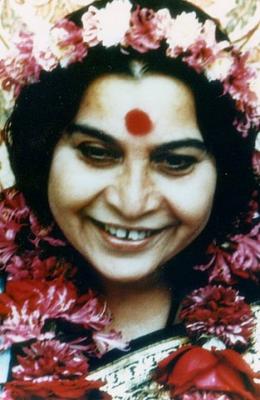
Shri Mataji Nirmala Devi was
Christian by birth, Hindu by
marriage, and Paraclete by duty.
"The Paraclete represents direct,
intimate divine intervention,
supporting and teaching
believers and challenging the
world, as Jesus did. " (D. Stevick
Jesus and His Own, 2011, 290)
But there has to be a Mother and this is the time of Aquarius what we call in Sanskrit as Kumbha, meaning the Aquarius which is the Kundalini, where She nourishes, where She cures you, She redeems you, She guides you, counsels you, and this is the time of the Mother. We had the time of the Father, then of the Son, and now this is the time of the Mother where She has to nourish you, where She has to take you to your ultimate goal that is the Spirit.
The consciousness itself, the way we have been moving in other directions, have been like people think that if a woman starts fighting for her life and then she is asserting the femininity. She is not.
What I'm saying is not meant for women or men. It is meant for every one of us, that we have to become like a mother. Like a Divine Mother, like a person who can nourish people, who can give them love, affection, attention, perseverance, fore-bearing.
This is only possible for a Mother to do it and that motherhood should be awakened in every human being.”
The Paraclete Shri Mataji
Public Program Day 1, Boston, United States—Oct. 11, 1983
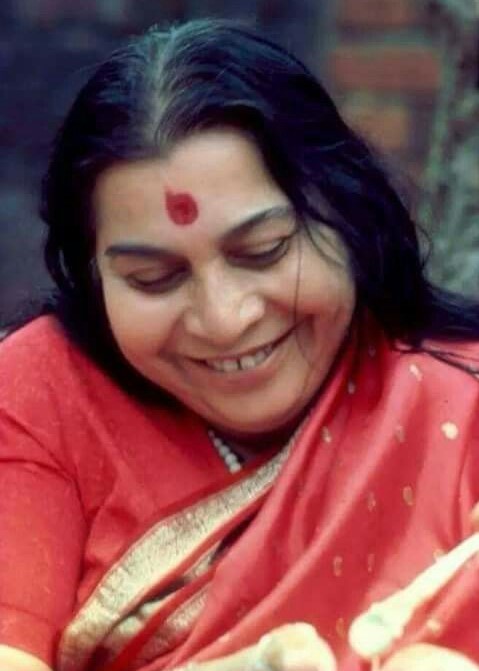
“I was amazed myself when I was born to see such ignorant people quarreling over something which they do not know at all—nothing of that kind. They are so ignorant. They do not know there is Power of God working. They cannot feel it and what are they doing?
Whether they are church people, or temple people, or all these scientists, when they talk about God they are at a level from where they cannot talk. But they are not even conscious that they are that level.
This is why we have to know that despite all efforts to destroy our scriptures this Knowledge that you have to become something else— that you are to be reborn—this Knowledge they could not destroy.
They have tried to maneuver it for their own advantage. They have tried to use it for their own building up because they had to have big, big buildings, they must have big, big money projects, and sometimes they also must have some business.
How can you do all these things in the name of God? Just think of it. And they are doing all these mad things and they call it God? And the seeker gets absolutely shocked and surprised that he also gets into the whole whirlpool. He just cannot get out of it because he is a seeker. He says, "Let me go and see for myself what it is. Let me burn my finger here and there and find out for myself."
Now I say again, like all these people have said—"You have to be born again!" They have said it to prepare you all for this Time [of the promised Paraclete sent in the name of Jesus Christ to explain and commence the Resurrection].
It's My fortune that I have to do it. It has to happen. If they had said all these things either they were all false and wrong. So I am here to prove it—not that they were wrong in any way but they were the only people who were enlightened. They had an eyesight to see much deeper than what you can see.
So within us lies that Power and that Power is anxious to give you your second birth. That Power lies as shown, lies in the triangular bone of sacrum and you can see with your naked eyes the rising of this Power.
It has nothing to do with what nationality you have come from, what sort of clothes you are wearing, what sort of hair dress you have—it has nothing to do with this but it has to do something with your inner being.
And while in your inner being there are certain problems which you have created out of your ignorance, and this Power being your Mother—your sweet loving Mother who has been born again and again with you—knows your problems and She knows how to correct it.”
The Paraclete Shri Mataji
London, U.K. — May 12, 1980
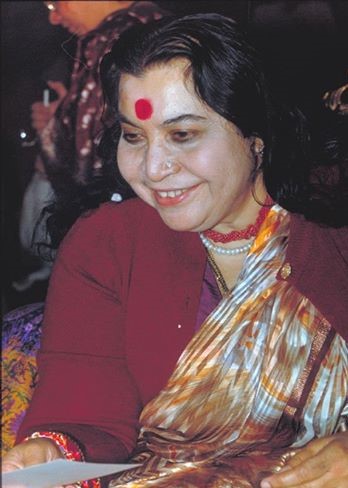
“This is the Last Judgment of your quality. This is the Last Judgment. And one must know that the Last Judgment is not going to come with a big weighing machine. How are we going to know?
Through Kundalini awakening, the Judgment has to take place.
And you are judged and judged and judged. But this Judgment is so beautiful, that you are not damned with anything, you are not completely imprisoned.
But you are given a chance to improve, to reform, to be perfect, and to enjoy the Beauty that is promised, the Beauty that is described, the Beauty that we are, the Beauty that is Truth, that is Bliss, that’s Heaven.”
The Paraclete Shri Mataji
Why are We Here and What is Our Purpose
Public Program, Hampstead, U.K. — June 6, 1980
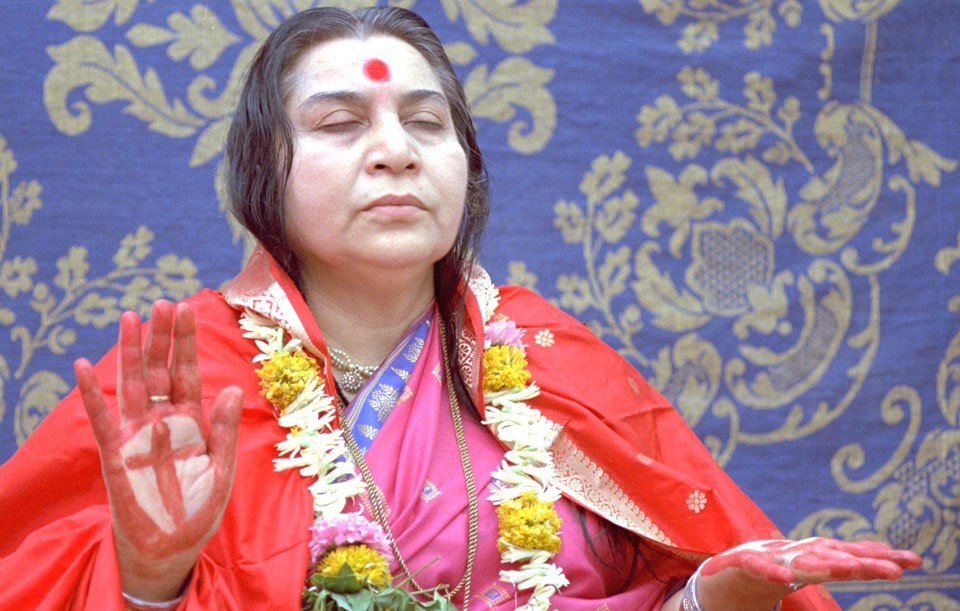
Now I have come.
He has talked about Me. If you read Bible, you'll find He's talked about Me very clearly there.
And I have to do My job and I have come.
You are going to say that it was Christ, who has to do it. If Christ could do it, why did He say that, "I'm going to send you a Comforter?" He talked of [the] future, didn't He?
Why did He say such a thing? We should find out why did He say that, "I will send you the Holy Ghost and the Comforter and the Redeemer and a Counselor?" Why did He say that? Why not look forward to that?
Because we are today after Christ. People don't want to see this point; they want to depend on Christ because He's in their pocket, they can use Him the way they like.
When He has talked, He has said, "Why not see the point?" If this is what Christ is, then it is such a bad thing because people say, "Christ was no good." They say, "What has Christ given us?" Christian nations, what have they done, what have they achieved?
It's a bad name to Him if you do not see [the] completion of His work. I'm here to complete His work...
And the Day of Judgment is today: this is the Day of Judgment; that's why you are confused. This is the Day of Judgment, where you will be judged. And how are you going to be judged?
Through your Kundalini. Your Kundalini is going to be awakened and you'll be judged where you are. That's what it is.
"And those who will be calling Me, 'Christ, Christ' I will not look at them." That's what it is. By calling Him "Christ, Christ" you do not become Christians.
You have to get your Realization, your Baptism in the actual sense. It has to be an actualization.
I'm telling you that if you miss the point, you have missed it forever and ever. Be careful on that point! It's very important. Don't run after things which have no meaning to your consciousness. Try to raise yourself up to this point and understand that the Time has come for you to transform. This is the Time of your Judgment and you have to get to it in a very big way...
Widen yourself. And that's how—though you may think that you are very unassuming, simple people—you are the ones who are going to be. Not those who are successful: they are blinded by their success. Not those who are rich: they are not going to enter into the Kingdom of God. Not those who have a big name — No!
It's you! You are going to enter into the Kingdom of God.
May God bless you.”
THE MOTHER: Messiah-Paraclete-Ruh
Public Program Day 1, Boston, United States—Oct. 11, 1983
![]()
“I believe Easter Sunday 2019 would be worthy of the Devi's explanation of Consciousness.”
Disclaimer: Our material may be copied, printed and distributed by referring to this site. This site also contains copyrighted material the use of which has not always been specifically authorized by the copyright owner. We are making such material available to our readers under the education and research provisions of "fair use" in an effort to advance freedom of inquiry for a better understanding of religious, spiritual and inter-faith issues. The material on this site is distributed without profit. If you wish to use copyrighted material for purposes other than “fair use” you must request permission from the copyright owner.